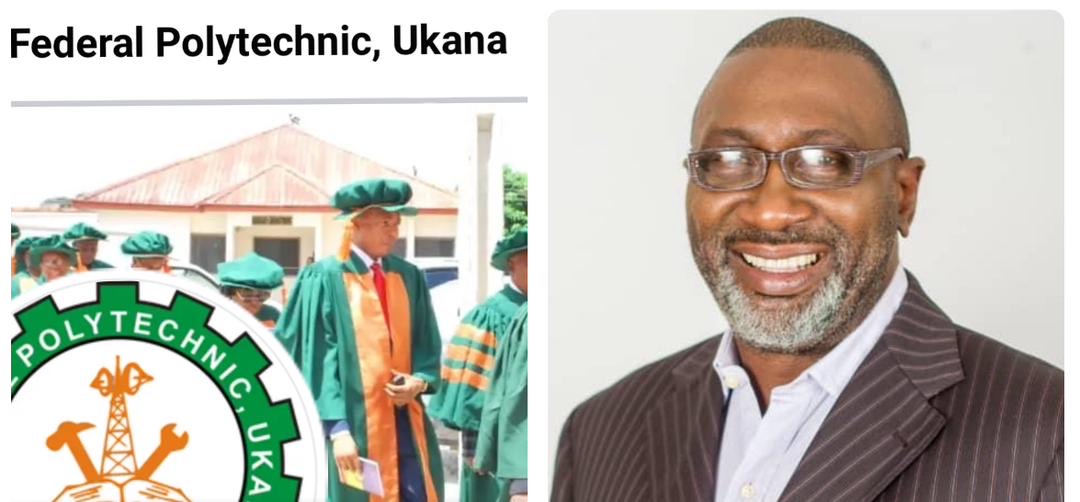Educational institutions represent the backbone of a nation’s development, providing the necessary skills and knowledge needed to foster innovation and progress. However, when the integrity of these institutions is compromised, the consequences ripple throughout society. The unfolding controversy surrounding the appointment of a new rector at the Federal Polytechnic, Ukana, Akwa Ibom State, serves as a stark reminder of the fragility of meritocracy in Nigeria’s educational landscape. Allegations suggesting that the new appointee lacks the required qualifications threaten not only the institution’s credibility but also the very principles of competence and qualifications that should govern academic appointments.
The situation is exacerbated by the troubling underperformance of the institution since its establishment in 2014. Nearly a decade later, it remains underdeveloped and struggles with an alarmingly low student population of fewer than 400. The root of these issues lies in a long-standing culture of appointing underqualified leaders, undermining the institution’s growth and hindering its mission to provide quality technical education. The recent appointment controversies reflect a broader concern about the erosion of meritocracy, as stakeholders worry that decisions, driven by personal affiliations rather than the best interests of the institution, may create a dangerous precedent that undermines the ethos of academic excellence.
The decline in integrity surrounding the selection process of leadership positions at Federal Polytechnic, Ukana, highlights the urgent need for a renewed commitment to merit-based appointments. The earlier controversial appointments to the institution’s Governing Council, purportedly made in violation of Nigeria’s Federal Character Principles, raised legitimate concerns about the credibility and impartiality of the governing bodies overseeing educational institutions. Such deviations not only threaten the institution’s reputation but also undermine the commitment to fairness and equity that must guide the selection of educational leaders.
In response to the uproar, President Bola Ahmed Tinubu’s directive for an immediate review of the appointments suggests a positive step towards accountability and transparency. However, as the situation unfolds, it is critical to remain vigilant against attempts to manipulate the narrative, as evidenced by allegations against the Senate President, Goodwill Akpabio. These tactics, often viewed as mere blackmail, divert attention from the more pressing issue: the urgent need for competent leadership backed by credible qualifications.
The legal framework governing appointments is explicit: a rector must possess a PhD from a recognized university in a field relevant to the polytechnic’s program. This regulation is not merely a bureaucratic formality; it embodies the principle of meritocracy that should be at the heart of educational institutions. Allegations that candidates with inadequate qualifications, such as a master’s degree, are being considered alongside those who meet the requirements pose a grave threat to the integrity of the selection process. The mere act of screening such candidates undermines the foundational principles outlined in the law, effectively negating Tinubu’s Renewed Hope agenda and risking further destabilization of the institution’s ethos.
To restore credibility and uphold the values of meritocracy at Federal Polytechnic, Ukana, immediate and decisive action is vital. The reconstitution of the Governing Council must be followed by a rigorous, transparent selection process for the new rector—one that adheres strictly to established legal requirements. This means rejecting any candidates lacking a PhD and ensuring that the screening process is not only inclusive but anchored in qualifications and competence.
Moreover, the Nigerian government must reaffirm its commitment to meritocracy through consistent monitoring and enforcement of policies related to academic appointments across all federal education institutions. Failure to do so will not only jeopardize the future of the Federal Polytechnic, Ukana but also set a dangerous precedent that undermines public confidence in the educational system as a whole.
An educational institutions like Federal Polytechnic, Ukana should serve as beacons of meritocracy, where competence and qualifications are prioritized over personal connections. As the government of Bola Ahmed Tinubu navigates this litmus test, the stakes are high. The commitment to uphold these values will ultimately determine the future trajectory of the nation’s educational sector, paving the way for a new era of transparency, accountability, and excellence in Nigeria’s higher education landscape. Only then can we hope to attract high-quality staff and students, fostering long-term development and progress for the institution and the nation at large.
Otunba Abdulfalil Abayomi Odunowo
National Chairman AATSG
Mobile: +2349053535322


